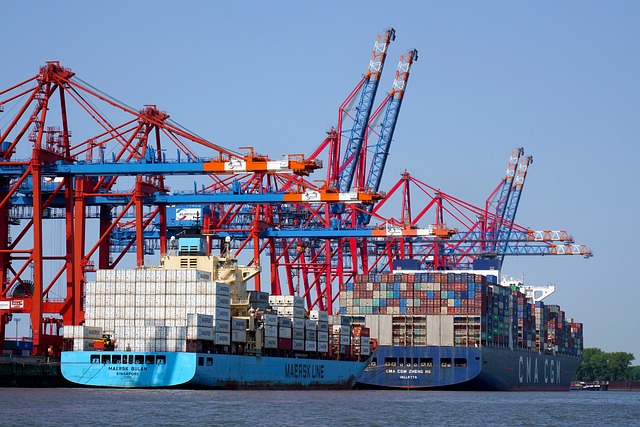The global supply chain industry is expected to see a CAGR of over 10% between 2020 and 2027. In a shifting and often tumultuous job market, supply chain jobs may provide room and stability for new workers.
Working in the supply chain industry doesn’t inherently mean that you’re breaking pallets and loading trucks. Supply chain management is a crucial role that can provide more mental challenges than physical ones.
What are some of the supply chain management jobs that are currently in high demand? How can you get your foot in the door?
We’re here to prepare you to launch your supply chain management career. Read on for our guide to supply chain management jobs.
High-Demand Supply Chain Management Jobs
If you begin the search for supply chain management jobs, you may find listings with broad, unspecified titles. For example, you might see companies hiring for the position of “supply chain manager,” which may serve as a catch-all position for several different roles. Because some titles are broad or used interchangeably by some recruiters, it’s always best to take a closer look at the job description to see if it aligns with your skills and career goals.
Now, let’s take a look at some of the specific job titles that fall under the category of supply chain management and that are in high demand today.
Supply Chain Analyst
Supply chain analysis involves data collection at all stages of supply chain and order fulfillment. The purpose of this data collection is to find deficiencies in the supply chain and streamline processes for better, faster results. The supply chain analyst’s number one goal is to cut costs while improving the quality of services.
Logistics Coordinator
Logistics coordination is on the inventory side of things, both in terms of storage and shipment. This is a major role that encompasses everything from fleet oversight to packaging and assembly to sourcing and procurement. The logistics coordinator is often one of the highest roles in the supply chain industry.
Purchasing Agent
A purchasing agent is a sort of liaison between the company they work for and that company’s suppliers. They are responsible for managing supplier relations and ensuring that orders meet quality standards. Purchasing agents also stay on top of any industry shifts and new suppliers that offer better products or better deals.
Supply Chain Specialist
The job title of supply chain specialist is similar to the job title of supply chain manager in that it’s kind of a catch-all. Before you apply for a supply chain specialist role, make sure you know what the hiring manager means. Typically, a supply chain specialist is going to oversee everything from receiving and sending shipments to inventory management.
Transport Manager
One of the most complex elements of the global supply chain is transportation, which can involve fleets of trucks, cargo ships, and even planes. A transport manager is in charge of monitoring every leg of the fleet. A transport manager will manage shipment schedules, oversee drivers and crew, and uphold safety laws and standards.
Production Scheduler
Production schedulers work on the manufacturing side of the supply chain industry. Their job is to develop and manage a schedule that keeps the production of materials or products running smoothly. This role can also involve coordinating with transport managers to make sure that completed shipments arrive at their destination on time.
Business Analyst
Business analysts are constantly working to balance an organization’s supply and demand, which is crucial in the supply chain. If a company doesn’t have enough materials or products to keep up with demand, businesses will look elsewhere for a supplier. On the flip side, too much supply and not enough demand will create waste, and a business analyst must make sure that everything remains efficient and cost-effective.
Project Manager
Project managers are often free-floaters in the supply chain industry, and some may work as independent contractors. If you enjoy versatility in your work environment and tasks, project management may be the right choice for you. Project managers step in to oversee individual improvements in everything from marketing to logistics to shipment.
Data Analyst
As you can see, data analysis plays a major role in the supply chain industry. If someone is hiring for the role of data analyst, they’re probably looking for someone who will analyze data sets from a specific sector within the supply chain. For example, you can be a data analyst in warehousing, transportation, acquisitions, packaging, or order fulfillment, and the goal will remain the same: to improve internal functions by assessing past performance.
Operations Manager
An operations manager may oversee new hires to ensure proper training and adherence to safety standards. They may also work with third parties like suppliers or manufacturers. Regardless of specific duties, an operations manager’s goal is to make sure the supply chain goes uninterrupted.
Supply Technician
These days, AI and robotics are making waves in the supply chain. With the right technology, the supply chain can become more efficient and cost-effective. A supply technician is responsible for installing, operating, and maintaining the equipment used within the supply chain, especially in production and warehousing.
How to Secure Supply Chain Management Jobs
We’ve talked about high-demand supply management jobs. Now the question is, how can you secure one of these jobs?
There are many paths forward in the supply chain industry. Let’s take a look at some of the resources to consider when applying for jobs in the supply chain.
Consider Your Current Work Experience
Many people make their way to supply chain management after spending several years in other fields. You’ll often encounter supply chain managers with a background in things like:
- Logistics (including government and military logistics)
- Sales
- Operations
- Inventory management
- Shipping
- Data analysis
- Robotics
Transferable skills can go a long way toward building a supply chain-ready resume.
To Return to School or Not to Return to School?
Some studies show that 70% of supply chain managers have a Bachelor’s degree. Now, many colleges offer a specific degree in supply chain management. If you don’t have a degree or your degree is in an unrelated field, should you go back to school?
Having a relevant degree may allow you to accelerate in the supply chain industry faster. However, relevant work experience can have a similar effect. If you’re starting out with no degree and no relevant job experience, you may need to start with an entry-level position with upward mobility.
Securing Certification
Many roles in supply chain management will require specific certifications. You can often secure these certifications through the Association for Supply Chain Management or the Institute for Supply Management.
Examples include:
- CPIM (Certified in Planning and Inventory Management)
- CPSM (Certified Professional in Supply Management)
- CSCP (Certified Supply Chain Professional)
Some employers will allow you to pursue certification while on the job while others will expect applicants to have certification already. Certification typically requires a certain number of hours of training followed by an exam. You can often complete these requirements on your own time online.
Finding the Right Recruiters
In addition to looking for open job listings, you can also contact supply chain recruiters. There are agencies that are recruiting for supply chain roles that can give you a competitive edge.
Supply chain recruiters can evaluate your experience to help you showcase your skills and narrow down on the supply chain management roles that you’re most suited for. They can also pass along your resume to companies and hiring managers that you won’t find on job boards.
Networking
Another important tool to use is your own ability to meet and impress. Networking is one of the best ways to broaden your career opportunities and get your foot in the door.
To network in the supply chain industry, attend industry-specific events in your area and start meeting people. You can also use online networking tools like LinkedIn to display your experience and share your expertise. Networking both online and in-person can lead to job offers, so don’t overlook it.
Start Your Supply Chain Management Career Today
Though the job market is constantly shifting, there’s one thing that remains the same: we need the supply chain to continue to evolve to meet consumer needs. In order to stay ahead of change, the supply chain needs experienced innovators. Use this guide to start thinking about the supply chain management jobs you might be interested in.
Looking for more information about technology, business, and education? Take a look around as we share the latest news and trends from around the globe that can help you get your career off the ground.







